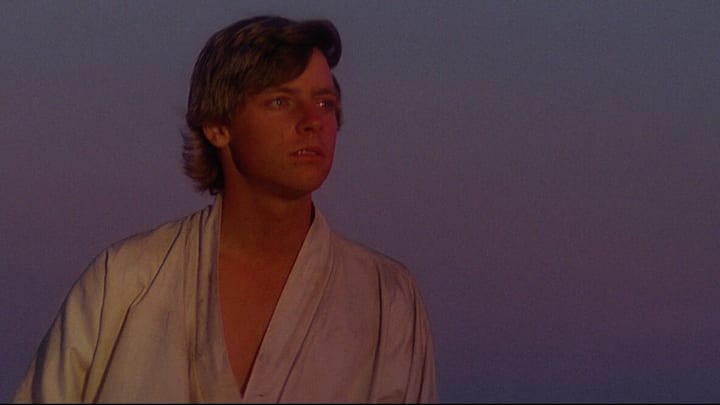June is Pride Month, and it's a good time to look back at one of the people who helped create Star Wars. She was uncredited for her contribution for a long time over contract reasons, but she shouldn't be forgotten for her work in a galaxy far, far away, and for many of our childhood favorites.
Let's discuss Angela Morley, the transgender woman who helped make the original trilogy.
Angela Morley was a composer and conductor from England who first started in music during her early life. Because of World War II, bands were looking for people to fill their memberships as their bandmates were sent off to battle. She was underage to serve, and thanks to her talent and ability to sight-read music, Angela made a name for herself by playing different instruments among different bands.
After the war, her work rose in popularity during the 1950s thanks to her time on BBC Radio. She would shift from playing in bands to working more with arranging, composing, and writing scores, working in radio and then later television and film. In 1953, she became Phillips Records' musical director, working with artists like Frankie Vaughan, Scott Walker, and Ronnie Carroll, the latter of whom was for Europe's ever-so-popular Eurovision Song Contest in 1962 and 1963.
Then from 1970 to 1972, Angela took a step back from public work. With support of her wife Christine Parker and friends like jazz player Max Geldray, Angela transitioned into the Angela we know now. She would later credit her wife's support, saying, "It was only because of her love and support that I then was able to deal with the trauma, and begin to think about crossing over that terrifying gender border."
Trans people belong everywhere, including working on Star Wars pic.twitter.com/OBcjktPjyI
— Em🦋 All ships are valid (@HuttSLeia) April 15, 2024
Returning to work, Angela's career took groundbreaking strides. She arranged and orchestrated 1974's The Little Prince, which earned her an Academy Award nomination. This made her the first openly transgender person to be nominated for an Oscar. By far, her best-known work is for the 1978 animated film Watership Down, for which she wrote most of the score. She would go on to pick up a second Academy Award nomination for The Slipper and the Rose: The Story of Cinderella as well as Primetime Emmy Awards including multiple wins for her work with Julie Andrews.
It was during this time that through a mutual friend, composer Herbert Winfield Spencer who also helped orchestrate and arrange Star Wars' original trilogy, that Angela met John Williams. The two hit it off, and Angela became a regular orchestrator and arranger for Williams through the Boston Pops Orchestra. She would contribute to A New Hope, The Empire Strikes Back, and Williams' other films like E.T.: The Extra-Terrestrial, Home Alone, Home Alone 2, Hook, and Schindler's List.
After the Cold War and the recession during the 90s, Angela had some trouble finding work. However, it would be John Williams who helped her. She shared on her autobiography page, "John Williams still seemed to like my arrangements. I wrote three for a CD that he recorded with the LSO in London called The Hollywood Sound, and three more that he recorded conducting the Pittsburgh Symphony with Itzhak Perlman playing the violin solos on a CD called Cinema Serenade... I’ve also continued to write occasional scores for the Boston ‘Pops’ under their new conductor Keith Lockhart. In March of 2001, I was asked to arrange a medley of the five nominated film scores for Itzhak Perlman & Yo Yo Ma to play at the Academy Awards ceremony. I’m very happy to be in that sort of company!"
Angela would settle down in Arizona, where she would live out the rest of her years when she passed away in 2009.
This is just a brief overview of the excellent life that Angela Morley lived and a snapshot of her work in radio, cinema, and Star Wars. It's easy to think that the introduction of queer people working in the franchise is a recent thing, but it's not. Queer people have contributed to Star Wars since the beginning and have always been here.
Star Wars is what it is because of the hard work of people like Angela Morley.
